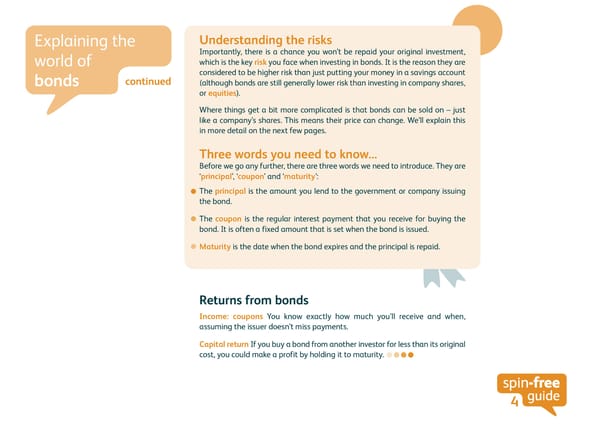Explaining the Understanding the risks Importantly, there is a chance you won’t be repaid your original investment, world of which is the key risk you face when investing in bonds. It is the reason they are continued considered to be higher risk than just putting your money in a savings account bonds (although bonds are still generally lower risk than investing in company shares, or equities). Where things get a bit more complicated is that bonds can be sold on – just like a company’s shares. This means their price can change. We’ll explain this in more detail on the next few pages. Three words you need to know... Before we go any further, there are three words we need to introduce. They are ‘principal’, ‘coupon’ and ‘maturity’: The principal is the amount you lend to the government or company issuing the bond. The coupon is the regular interest payment that you receive for buying the bond. It is often a fixed amount that is set when the bond is issued. Maturity is the date when the bond expires and the principal is repaid. Returns from bonds Income: coupons You know exactly how much you’ll receive and when, assuming the issuer doesn’t miss payments. Capital return If you buy a bond from another investor for less than its original cost, you could make a profit by holding it to maturity. 4
 Spin-Free Guide to Bonds Page 3 Page 5
Spin-Free Guide to Bonds Page 3 Page 5